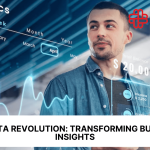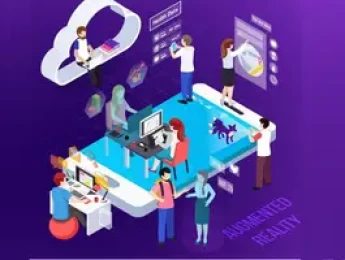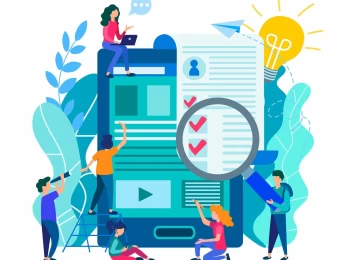Access to Big Data and accurate data analytics and management systems is essential to any forward-thinking business. Data science can help you identify trends and patterns regarding your customers and clients and predict and forecast market movements for the future.
This, in turn, will help you to develop products and services that are beneficial for your target market and promote growth, increase conversion and develop better satisfaction ratings. The availability of past data also helps a company to forecast resource requirements and save on staffing costs by implementing changes that will be most beneficial for maintaining productivity and high-quality services.
Big Data gives you a high-level view of how every aspect of your business is running, allowing you to identify areas that need review and prioritise changes. To make the most of your big data and analytics, you need to understand what you’re looking at, what you need to monitor, and what the results tell you.
U pon completion of this course, participants will be able to:
- Understand the best Big Data and analytics sources for your business.
- Develop a structured framework for future growth based on analytics.
- Interpret data to create accurate predictions.
- Create risk management procedures based on data.
- Target appropriate audiences using big data and segmentation.
- Utilise the benefits of Big Data to develop stakeholder interest.
- Use Big Data and analytics to improve productivity and performance within your organisation.
This course is designed to assist anyone involved in the strategic development of a business or anyone responsible for data interpretation in creating a structured prediction framework. It would be especially beneficial for:
- Data Analysts
- Project Managers
- Business Directors
- Business Owners
- Operations Managers
- Team Leaders
- Supervisors
- Technology Engineers
- IT Professionals
- CMOs and CEOs
This course provides various learning styles to aid in understanding and accurately utilising Big Data results. Participants will participate in group seminars to discover the different data uses and discuss data collection points and projects.
Group discussions and practical exercises will help to develop journey maps based on data evaluation to determine an action plan to improve your products and services based on customer habits and segments. You will be asked to review your current company procedures and create an ideas tree based on the available data and its potential usage to benefit your future growth.
Day 5 of each course is reserved for a Q&A session, which may occur off-site. For 10-day courses, this also applies to day 10
Section 1: What is Big Data?
- The principles of Big Data.
- The role of Big Data in your organisation.
- Big Data V models.
- Finding effective data.
- Current data trends.
Section 2: What is the Data Telling You?
- Data Sampling.
- Business intelligence and data.
- The drivers for business intelligence.
- Unsecured vs. secured data analytics.
- Integrating data analytics into your process.
Section 3: Utilising Data Effectively
- R programming language utilisation.
- The R framework and testing.
- Understanding evaluation techniques.
- Advanced clustering methods and utilisation.
- Association rules and how to plot a hypothesis using data.
- Theories of regression using analytics.
Section 4: Models for Accurate Evaluation
- Data classification with analytical theory.
- The time series analysis and its meaning.
- Textual analysis techniques and tools.
- Assessment and remodelling.
Section 5: The Big Data Lifecycle
- Discovering data
- Preparing and understanding data.
- Planning a change model based on data insights.
- The change framework and moving forward.
- Communication and stakeholder buy-in
- Reaching out to your consumers.
- Operations framework and implementation.
- Monitor and review findings.
Section 6: Monitoring Tools for Effective Evaluation
- Data analytics software and what will work for you.
- Data visualisation and forecasting.
- Management approach and best practice comparisons.
- Target market review and customer segmentation.
- Review and feedback processes from consumers, stakeholders, and partners.
- Visualising data models of the future.
Section 7: Forecasting and Future Frameworks
- Solving problems using data.
- How to predict market changes and be proactive.
- Managing performance using data.
- Debunking myths and false predictions.
- A roadmap to your future.
Upon successful completion of this training course, delegates will be awarded a Holistique Training Certificate of Completion. For those who attend and complete the online training course, a Holistique Training e-Certificate will be provided.
Holistique Training Certificates are accredited by the British Assessment Council (BAC) and The CPD Certification Service (CPD), and are certified under ISO 9001, ISO 21001, and ISO 29993 standards.
CPD credits for this course are granted by our Certificates and will be reflected on the Holistique Training Certificate of Completion. In accordance with the standards of The CPD Certification Service, one CPD credit is awarded per hour of course attendance. A maximum of 50 CPD credits can be claimed for any single course we currently offer.
- Course Code PI1-105
- Course Format Classroom, Online,
- Duration 5 days














